Honing skills for a digital and sustainable economy
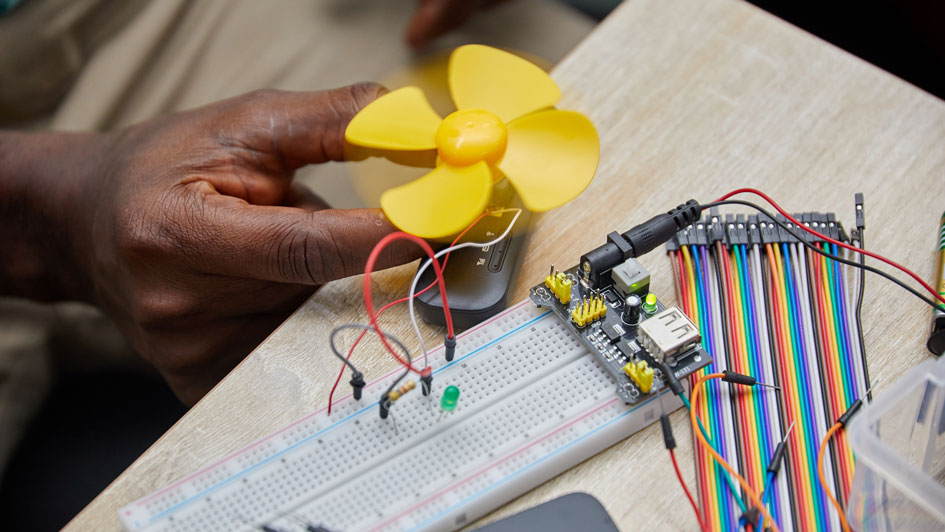
Together with the Ghanaian Ministry of Education, we are offering advanced training on the Arduino open source platform to teachers in Ghana.
© Siemens Stiftung
Education is the most important prerequisite for Ghana’s political, economic, and social development in a world that is increasingly dominated by digital technologies and changing rapidly. Above all, practical knowledge in the field of information and computer technology is an important prerequisite to actively shape the associated changes.
To support teachers in Ghana in showing students possible career paths and career prospects, Siemens Stiftung has developed a career orientation module for students in high school as an adaptation of the established STEM program Experimento, which links content from STEM lessons with apprenticeships, strengthening the necessary basic knowledge for future career choices. To realize this, Siemens Stiftung and its partner Ghana LBG offer teacher training courses that combine a research-based learning approach with computational thinking and a strong practical focus. The module is used at junior high schools to get young people interested in STEM and STEM careers.
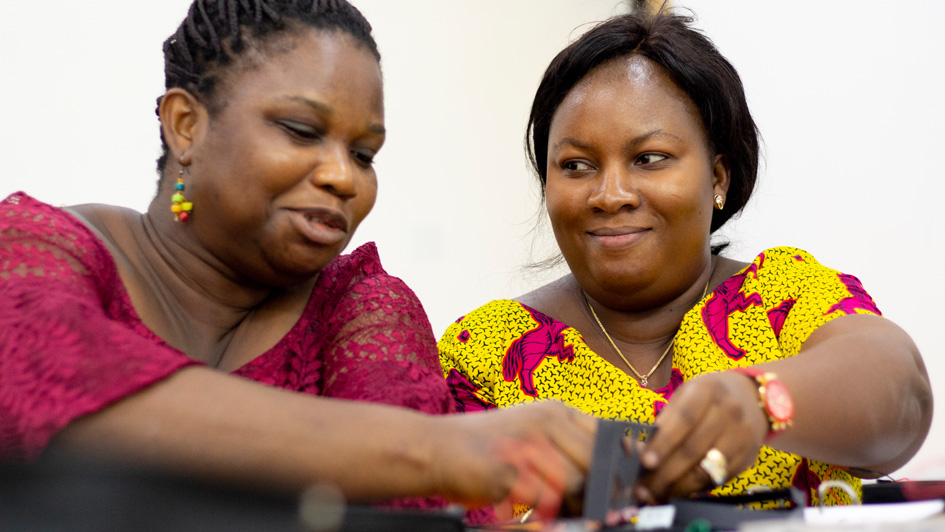
With the help of the “Vocational Orientation” module, teachers are trained on topics such as renewable energies, climate change education, but also computational thinking (ICT skills) and electronics. They first complete a web-based-training course, on computational thinking, after which they are given materials to put what they have learned into practice. The Arduino microcontroller is used to simulate over 30 programming applications, such as the control of a traffic light system or the temperature-dependent control of a fan.
The program is certified by the state-run Ghana Education Service as a further education module and contributes directly to Ghana’s new, skills-based curriculum. So far, 80 teachers have already taken part in the training courses.
Peace Kumah, STEM teacher in Accra: “Experimento has really supported my daily teaching because we have now received the Arduino test kits that make complex experiments very easy to practice for students in the classroom and therefore make teaching and learning very effective.”
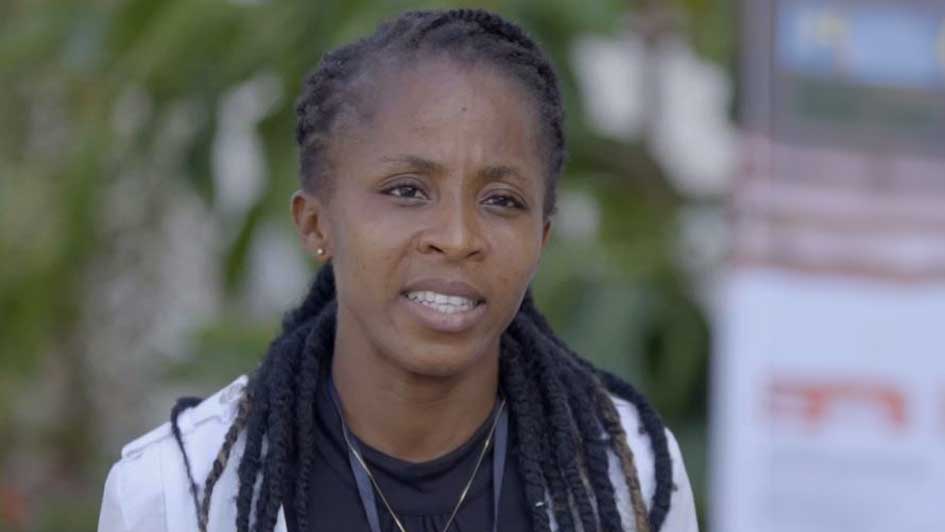
Thanks to donations from Siemens Technology as part of the Tech for Sustainability Campaign, more than 300 additional Arduino microcontrollers have been purchased for schools. A three-day training course for 60 STEM and ICT teachers was held in addition in Accra to ensure that students can benefit optimally and learn with the microcontroller about programming applications. Also present at the opening event were Olivia Serwaa Opare, Director of STEM Education at the Ghana Education Service (GES), as well as the representative of the Chief of Osu, who welcomed the participants.
Olivia Serwaa Opare, STEM Director, Ghana Education Service: “Learning with Arduino microcontrollers bridges the gap between theory and technical application and enables students to learn computer applications. The multipliers were trained in advance, so that they could then carry out the workshops at other schools in Ghana and build the skills of many more teachers.”
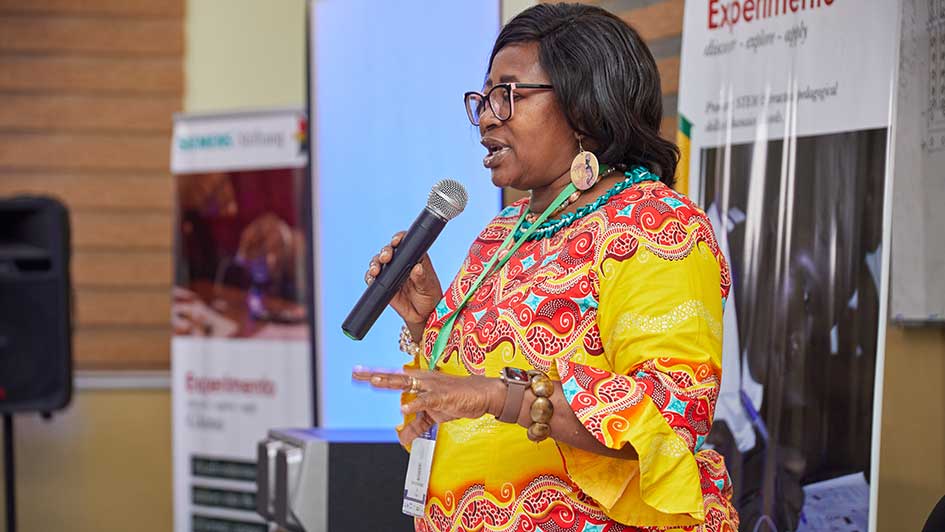
Work-based learning with Arduino microcontrollers is also becoming increasingly relevant in other African countries to implement the skills-based curricula for a future-proof, digital and sustainable society and economy. Arduino training courses are currently also taking place in Kenya with Experimento multipliers. Here, too, the spread is still relatively small and is mainly to be found at a few locations in Nairobi. More resources are needed to enable scaling to rural areas.
Video about the Arduino Wokshop in Ghana
Programming with Arduino:
Teachers from Ghanaian public schools participate in the training workshop to improve ICT skills.
Related links
Continue reading
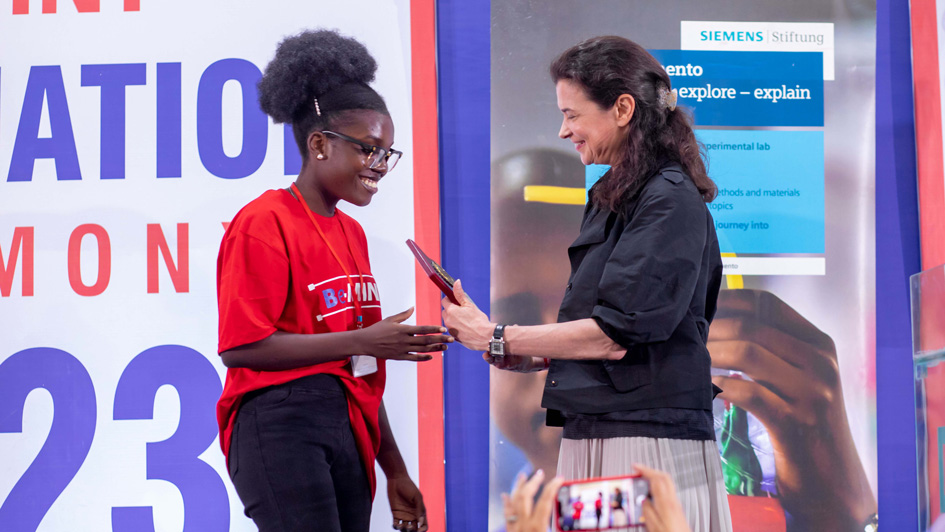
New makerspace inaugurated in Lagos to enhance career prospects for Nigerian youth
- A makerspace, part of the BeMINT_Nigeria training and internship program for high-school graduates was launched in Lagos. 400 participants from underserved communities receive entrepreneurial and digital skills training at the innovative space.
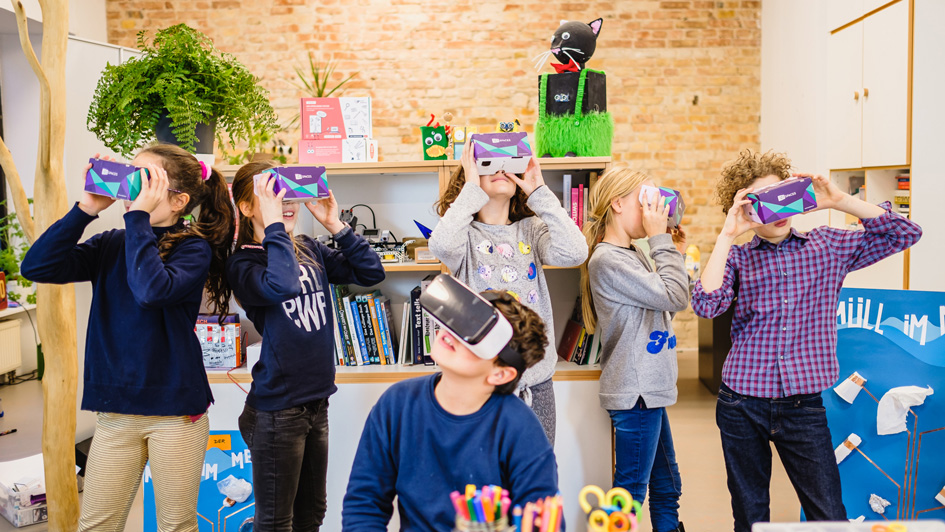
Gateway to nurturing future competencies for teachers and students: STEAM Hub Siemensstadt Square, Berlin
- STEAM Hub Siemensstadt Square, Berlin offers a wide range of innovative educational programs for a rapidly changing world.


